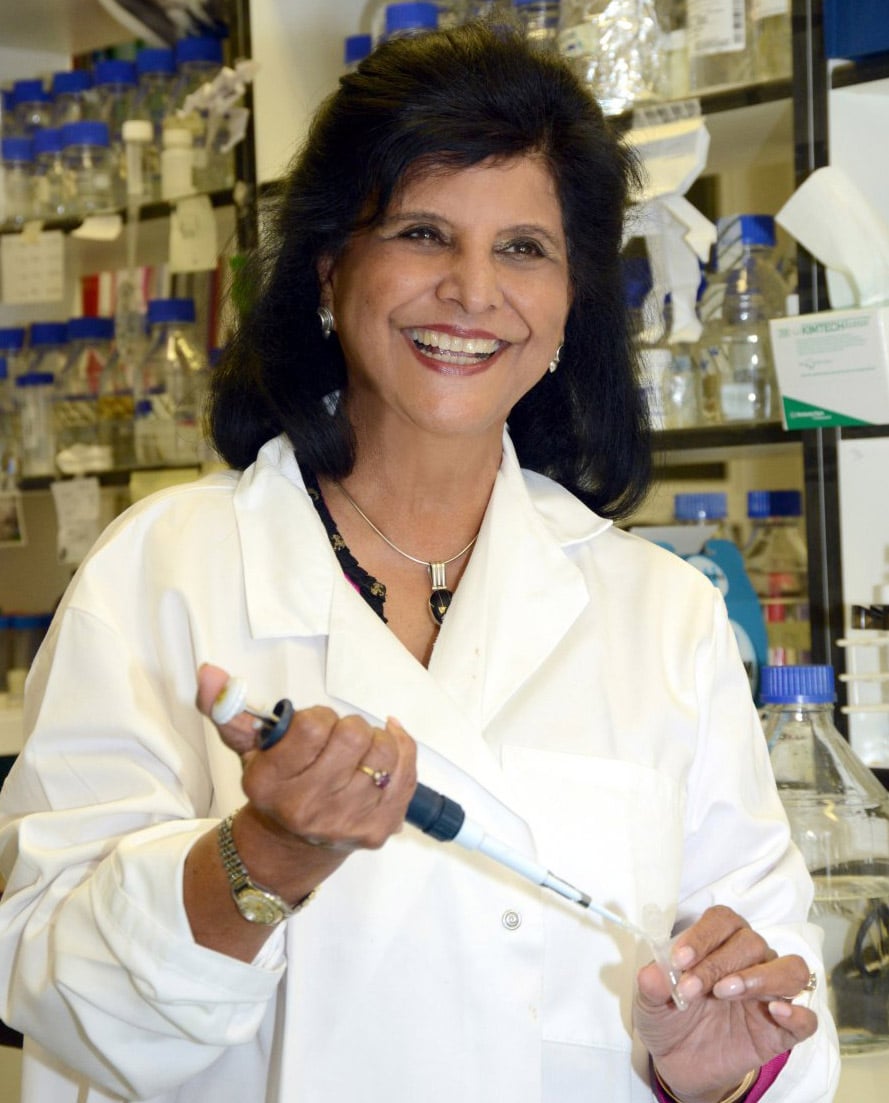Women in Health 2018 Lecture - How a virus works: a journey
As part of International Women’s Day, Professor Polly Roy will be delivering LSHTM’s annual Women in Health Lecture, on 'How A Virus Works: A Journey'.
The lecture will focus on the progress of Professor Roy’s career, from basic biology to novel applied outcomes to improve treatment, alongside how being a woman has influenced her decisions and direction, and the obstacles she has encountered and overcome.
It will be followed by an informal discussion with Professor Dame Anne Mills, Provost & Deputy Director.
| Venue | Room | Date | Time |
|---|---|---|---|
| Keppel Street London Get Directions |
John Snow Lecture Theatre | Wednesday 14 March 2018 | 17:30 - 19:00 |
What is your current role?
I am a Professor of Virology at the London School of Hygiene & Tropical Medicine
What drove you to work in academia and research?
From childhood I knew I wanted to have a career in science, to be in academic research and I wanted to be a professor someday. I was lucky to have the right opportunity at the right time. My career started when I arrived in the US, in New York. The seventies was a fantastic time, the start of molecular biology research, it was very stimulating and I wanted to be part of it.
Who has inspired you throughout your career?
My mentor was Sol Spiegelman - a giant in molecular biology and a tremendous inspiration. However I was also surrounded by many scientists who had won Nobel Prizes. Sol Spiegelman was of that standing so I got to meet many good researchers and they inspired me all through my life.
What’s the best piece of advice you’ve received from a mentor?
The best piece of advice I’ve received from a mentor is to work hard and be very curious and diligent about your work.
What is your career highlight?
There have been many of course but the most significant to me personally was to receive the Indian Science Congress General President's Gold Medal, awarded by the Prime Minister of India in 2012. I don’t have any formal link with the Indian science community but nevertheless they selected me for the gold medal, along with several Nobel laureates, so that was a definite highlight in my life.
What do you see as the greatest challenge in global health?
To ensure the distribution of benefit to those who need it most. It is a fact that most scientific research is done in countries where the wealth allows it but that the greatest need occurs elsewhere. Ensuring the one flows to the other is always a challenge. I also think it is important to keep in mind the long term pernicious health problems that are always there. They can get overlooked in times of acute disease such as the Ebola crisis, or more recently Zika, but they remain far more important in a global view. Lastly I think we forget that global health is multifaceted and that improvement in livestock and the environment can bring as much benefit as direct drug development.
How important is the Women Leaders in Global Health Conference that is coming up in November?
I think the topic of global health is important irrespective of who is involved, however the role of women in the family, their ability to mediate and their access to certain sectors of community that would otherwise be closed, means they are particularly important in ensuring that the best science leads to the best practical outcome whenever possible…and they can achieve that. If they are involved in ground-breaking science itself so much the better – there should be no glass ceilings.
In three words what advice would you give to women embarking on their career?
I have four! Be fearless and ambitious.
How excited are you to be presenting this year’s women in health lecture on 14 March?
I am very excited about giving the women in health lecture this year because it is going to give me the opportunity to share my unique scientific journey with others, and of course to discuss my work in virology.
What can the audience expect to discover at your lecture?
On my personal story, that starting from Calcutta, India, where it was very rare for a woman to go to America to study, which I did on a scholarship, you can persevere and keep focussed on the science you want to do. On my work, how a simple virus can take over a host, how intricate the process is, and how we can develop different kinds of vaccines and the possibility of therapeutics.
The Biotechnology and Biological Sciences Research Council (BBSRC) asked Professor Roy a number of questions reflecting her career so far as part of their feature on BBSRC women in research and innovation. Visit the BBSRC website to read the Q&A in full.
